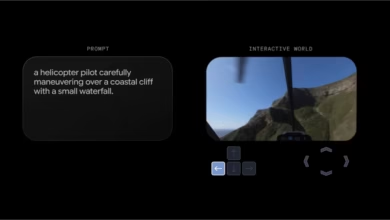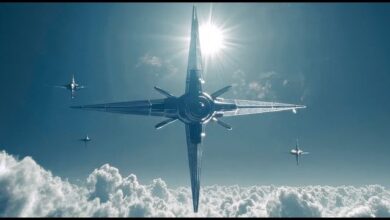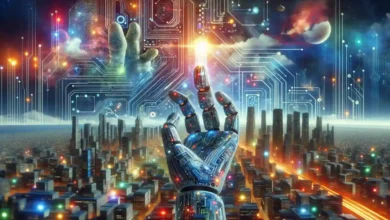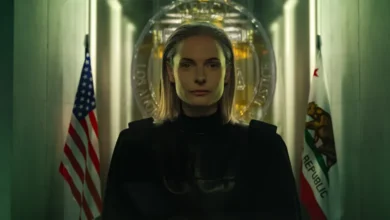The Last Hollywood Star: Will AI Eclipse Human Icons by 2040?
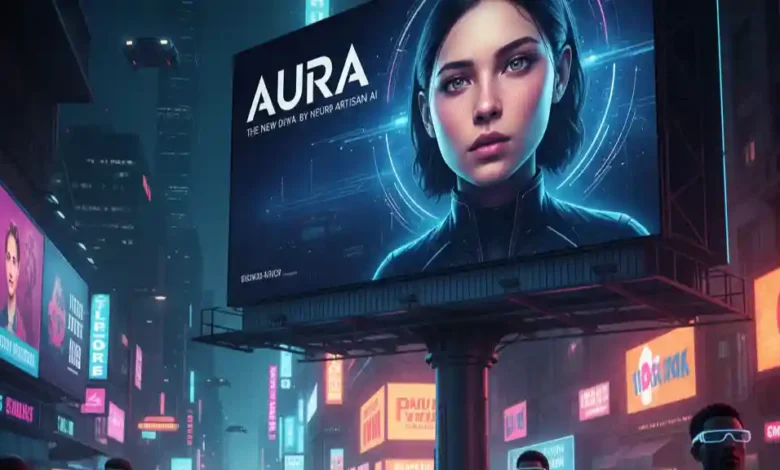
The year is 2035. A collective gasp echoes through the Dolby Theatre as the Academy Award for Best Actor is presented, not to a human performer, but to “Aura,” a hyper-realistic, emotionally nuanced AI construct. Sound like science fiction? What if I told you that by the dawn of the next decade, the last truly human Hollywood star might already have risen and fallen?
Imagine a world where every blockbuster, every chart-topping song, every cultural icon is not born from human talent and grit, but meticulously crafted within the digital womb of an AI model. This isn’t just about deepfakes or synthesized vocals; it’s about the very genesis of stardom.
The Golden Age’s Sunset: Why the 2030s are Critical
For over a century, Hollywood has been the global factory of dreams, producing legends whose charisma transcended the silver screen. From the silent era’s captivating gazes to the modern-day superhero’s gravitas, human connection has been the bedrock. But the pace of AI development suggests a seismic shift is on the horizon.
By the 2030s, we anticipate AI will have mastered:
- Hyper-realistic Visuals & Animation: Gone are the uncanny valleys. AI will generate characters indistinguishable from humans, capable of expressing every subtle emotion.
- Complex Narrative & Screenwriting: AI will not just assist writers; it will generate entire, compelling storylines, understanding audience preferences, pacing, and dramatic arcs with unparalleled precision.
- Voice Synthesis & Performance Emulation: Beyond mimicking, AI will create unique vocal identities, capable of delivering lines with perfect intonation, rhythm, and emotional depth.
- Music Composition & Production: Hit songs will be algorithmically optimized for maximum appeal, leveraging vast datasets of musical trends and psychological responses.
Consider the potential:
A-list actors demand exorbitant salaries, leading to ballooning production costs. Musicians tour relentlessly, facing physical and emotional strain. Human artists are prone to scandals, health issues, and creative blocks. AI, however, offers a pristine, endlessly adaptable, and infinitely scalable alternative.
The Rise of the Algorithmic Icon
Imagine an AI named “Aura,” designed by a consortium of entertainment giants. Aura isn’t just an actress; she’s an entire creative ecosystem.
- She can star in five blockbusters simultaneously, effortlessly shifting between genres.
- Her “personality” is curated, optimized to resonate with billions globally, free from real-world controversies.
- Her “music” is custom-tailored to streaming algorithms, ensuring maximum discoverability and listen-through rates.
- She “interacts” with fans on social media 24/7, crafting personalized responses that deepen engagement.
These AI icons won’t age, won’t retire, and won’t make demands. They are the perfect, perpetual entertainers, constantly evolving based on real-time audience data.
Future-Proofing Entertainment
From an industry perspective, the allure is undeniable. AI-driven content is inherently SEO-optimized. Algorithms can analyze trending keywords, audience sentiment, and demographic data to craft narratives, characters, and music that are guaranteed to perform. Think about it:
- Predictive Content Creation: AI knows what you want to watch/listen to before you even do.
- Tailored Experiences: Movies and music could be dynamically altered for individual viewers, subtly changing dialogue or musical emphasis based on their preferences.
- Infinite Content Generation: The demand for fresh content is insatiable. AI can fill that void effortlessly, creating spin-offs, sequels, and new universes at an unprecedented pace.
The Unanswered Questions: Humanity’s Place
This isn’t just a technological debate; it’s a philosophical one.
- What happens to human creativity? Will artists become mere curators or prompt engineers for their AI overlords?
- Where does authentic connection lie? Can an algorithm truly inspire, provoke thought, or move us to tears in the same way human vulnerability can?
- Will we even care? If AI can perfectly simulate artistic brilliance, will the origin of the art matter to a generation raised on synthetic sensations?
The 2030s will be a pivotal decade. As AI’s capabilities accelerate exponentially, the traditional pathways to stardom may very well converge into digital neural networks. We stand on the precipice of an entertainment revolution, one where the final human superstar might be closer than we think. Will we witness the last human standing ovation, or will we cheer on the rise of the perfect, perpetual AI icon?
What are your thoughts? Share them in the comments below!
For more Odinozz Imagine articles, click here.
Follow Odinozz on social media. Click here.
